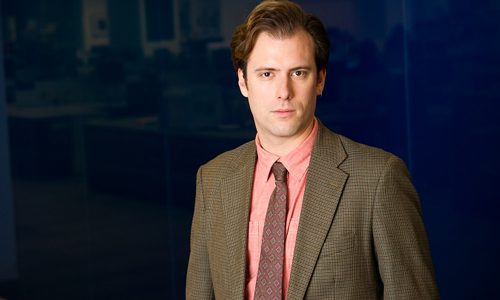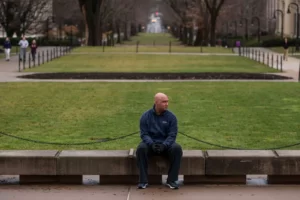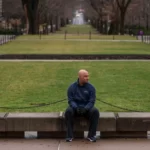Christopher Weaver is a health care reporter for The Wall Street Journal. While his eight years on the beat have seen him reporting on topics ranging from hospitals to insurers to drug companies, in recent years he has focused on the practices and financial motivations of doctors, hospitals and nursing home operators that bill the federal Medicare program. Along with his colleagues, he won a 2015 Pulitzer Prize for investigative reporting for the Journal’s series “Medicare Unmasked.” Weaver was one of the recipients of the 2016 Barlett & Steele Silver Award for “Testing Theranos,” which unmasked the blood-testing company’s fraudulent claims.
What’s the most valuable lesson you’ve learned over the course of your career?
That trying everything helps. I’m on the Journal’s data team, which is part of the investigative team. We [normally] use computers to find out things, but in … our coverage of Theranos, I could have done it on a typewriter. Because it turned out that humans were the ones who knew the most what was going on with this secretive, private company [which] interacts only sporadically with regulators—until now, when they’ve had major confrontations with a variety of federal agencies.
We find that we are up against sometimes pretty steep odds, reporting about people who have a costly apparatus to keep their operations secret, and we use public records and interviews with human sources, and data that we can sometimes get. We put that entire constellation together to try and find out what’s really going on. And keeping as broad of a perspective of what the opportunities to find information is something that’s been, for me, an incredibly successful strategy for reporting.
Knowing what you know now, what advice would you give yourself when you were first starting out?
A lot of people gave me advice when I was going into this field to the effect of, “Are you sure you don’t want to consider something else for your profession?” I got a job offer in another industry when I was 22 that would have paid more than I made over the next seven years, and it’s a difficult thing to reflect on, particularly as I’m getting older and have a family. But I love reporting and I think if you don’t then you probably shouldn’t go into journalism. I got into this profession because I thought I was good at writing and thought it would be fun. But the work is mostly finding out stuff, and if you don’t think that’s a great thing to do, then I suggest you try another career.
I think if I could go back and do it over I probably would have tried to work in a smaller town newspaper. I never really had the opportunity to do local reporting. It’s very hard to do that now. The opportunity at the national level seems to be blossoming while the opportunity at the local level seems to be declining. But I really do wish sometimes I’d had the chance to try it out.
How do you manage to remain objective in your reporting?
This industry beats your opinions out of you if you do this long enough and follow enough stories and run into enough people. I find that when I focus on trying to find facts first it makes it easier in ultimately trying to get to the truth. It’s a lot easier to find out a discreet fact than it is to find out the whole truth of what’s going on objectively. But I look at the work I do as a reporter as a series of fact-finding missions. I hope, when we in the newsroom, in conjunction with our editors and colleagues, turn them into a story that finally makes it into a paper, it comes close to capturing the truth of something.
What drew you to business and investigative journalism and why do you think it’s important?
Well, investigative journalism is great because you have fewer deadlines and get to write longer and more fun and exciting stories. I think it’s all reporters sometimes aspire to doing fewer and better stories. But I was drawn to it because I like finding out stuff against the odds, and I like finding out stuff that someone else is trying to keep secret. I think it’s important specifically, and I think it’s a great way to earn a paycheck. You know, business hasn’t always been the greatest aspirations for young reporters, to cover business and finance. Maybe that’ll change, because who would want to cover politics now? But it’s one of the ways that much of our human enterprise in this era expresses itself. It’s one of the ways that people measure the value of what they create in the world, and it’s one of the ways that people measure their power. And I find that covering business has just provided an endlessly fascinating window into all kinds of endeavors.










